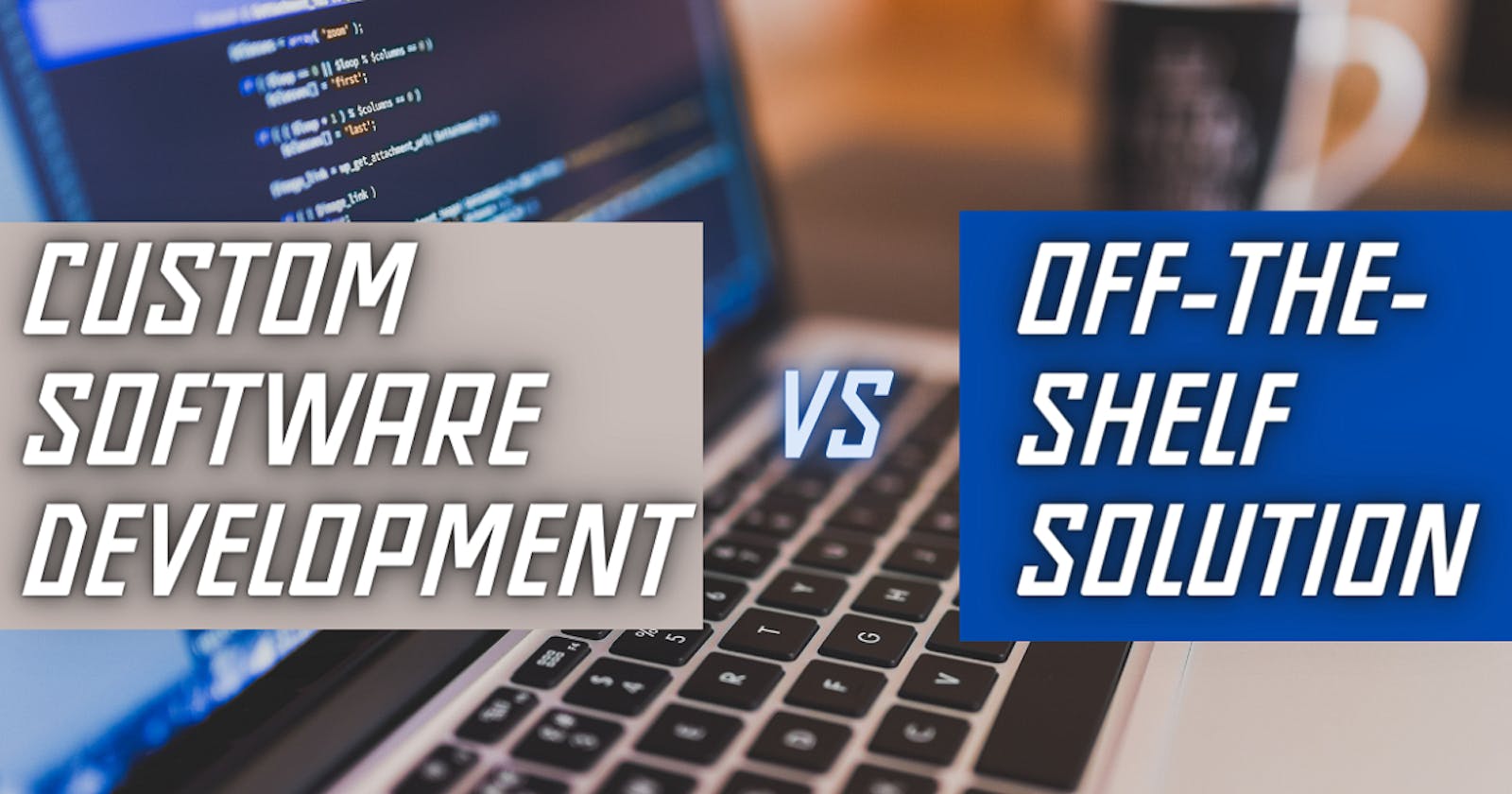Custom Software Development vs Off-the-Shelf Solutions: Which is Right for You?
As businesses of all sizes and industries rely on software to manage their operations efficiently. However, with so many software solutions available on the market, choosing the right option for your business can be a very difficult task. When it comes to choosing right software for your business, you have two main options: custom software development and off-the-shelf solutions. Both have their benefits and drawbacks, and the choice ultimately depends on your specific business needs.
In this blog post, we'll explore the differences between custom software development and off-the-shelf solutions, and help you decide which option is right for you.
What is Custom Software Development?
Custom software development is the process of creating software that is specifically tailored to your business's unique needs. This can include features such as integration with other software systems, customization of workflows and business processes, and the ability to scale as your business grows.
Custom software development is typically done by a team of developers who work closely with the client to understand their needs and create a software solution that meets those needs. The process involves several stages, including planning, design, development, testing, and deployment.
Advantages of Custom Software Development
One of the main benefits of custom software development is that it is tailored specifically to your business needs. This means that you can include features that are specific to your business, which may not be available in off-the-shelf solutions. Custom software can also be integrated with other software systems you use, making it easier to manage your business processes.
Custom software can be designed to grow with your business, meaning that as your business expands, the software can be easily updated to meet your changing needs.
Finally, custom software can provide a competitive advantage. By having software that is specifically designed for your business, you can gain a competitive edge over other businesses in your industry.
Disadvantages of Custom Software Development
One of the main disadvantages of custom software development is cost. Custom software development can be expensive, especially if you require complex features or integrations. Additionally, the development process can be time-consuming, meaning that you may have to wait several months before your software is ready.
Another drawback is the need for technical expertise. Custom software development requires a team of skilled developers who are experienced in developing software solutions. This means that if you don't have an in-house team, you may need to outsource the development, which can be expensive.
What are Off-the-Shelf Solutions?
Off-the-shelf solutions, also known as packaged software or commercial software, are pre-built software solutions that are designed to meet the needs of a wide range of businesses. These solutions are often available as software-as-a-service (SaaS) or cloud-based solutions, which means that you pay a monthly or annual fee to use the software.
Off-the-shelf solutions typically have a set of standard features that are designed to meet the needs of most businesses. These features may include accounting, inventory management, and customer relationship management (CRM).
Advantages of Off-the-Shelf Solutions
One of the main benefits of off-the-shelf solutions is cost. Off-the-shelf solutions are often much cheaper than custom software development, making them a more affordable option for small businesses. Additionally, because they are pre-built, they can be deployed much faster than custom software.
Off-the-shelf solutions are designed to be user-friendly and require little to no technical expertise to use. This means that you can start using the software right away without having to go through a lengthy training process.
Off-the-shelf solutions often come with a wide range of features that are designed to meet the needs of most businesses. This means that you can get the software you need without having to invest in costly custom development.
Disadvantages of Off-the-Shelf Solutions
One of the main drawbacks of off-the-shelf solutions is that they are not tailored to your specific business needs. This means that you may have to compromise on certain features or workflows to fit the software.
Off-the-shelf solutions is scalability. While these solutions are designed to meet the needs of a wide range of businesses, they may not be able to handle the unique needs of your business as it grows and expands. As your business evolves, you may find that the off-the-shelf software you are using is no longer sufficient, which may require you to switch to another software solution or invest in custom software development.
Another potential drawback is the lack of customization. Off-the-shelf solutions are designed to be used by a wide range of businesses, which means that they may not have the specific features or workflows that your business requires. This can limit your ability to optimize your business processes and may require you to work around the limitations of the software.
Finally, off-the-shelf solutions may not be as secure as custom software. Because these solutions are used by a wide range of businesses, they are often targeted by cybercriminals who look for vulnerabilities in the software. This can put your business data at risk and may require you to invest in additional security measures to protect your data.
Which is Right for You: Custom Software Development vs Off-the-Shelf Solutions
When deciding between custom software development and off-the-shelf solutions, it's important to consider your specific business needs. If your business requires a high level of customization or unique features, custom software development may be the best option. On the other hand, if your business needs can be met by a standard set of features, and cost and ease of use are important factors, off-the-shelf solutions may be the better option.
It is also important to consider the long-term needs of your business. If you anticipate significant growth or changes in your business needs, custom software development may be a better investment in the long run, as it can be designed to grow and evolve with your business. However, if your business is more stable and your needs are not likely to change significantly in the foreseeable future, an off-the-shelf solution may be a more cost-effective choice.
Conclusion
In conclusion, both custom software development and off-the-shelf solutions have their benefits and drawbacks. The choice ultimately depends on your specific business needs and long-term goals. By carefully evaluating your options and considering factors such as cost, customization, scalability, and security, you can make an informed decision about which option is right for you.



